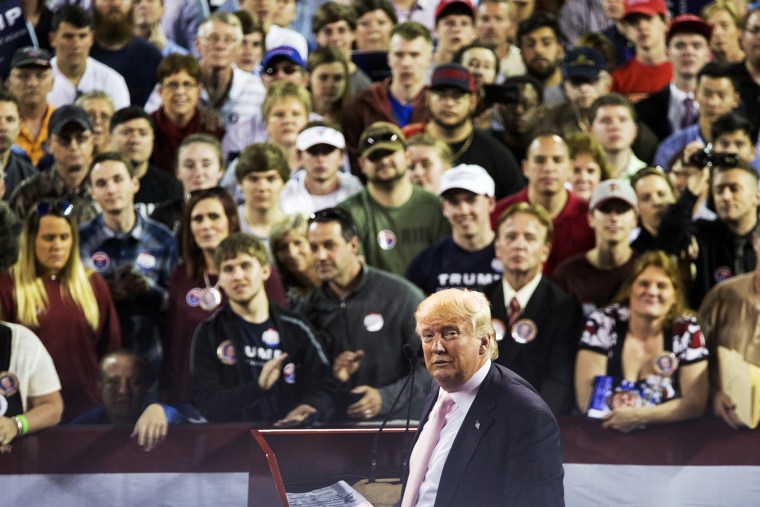The delegate math is becoming increasingly clear: The March 15 Florida and Ohio contests will determine if Donald Trump is the sure-to-be Republican nominee or if there's a contested GOP convention.
And there doesn't appear to be any other possibility, given that the nominee needs to win 1,237 delegates to win a majority.
Here's the current delegation situation: Trump holds an 88-delegate lead over his closest competitor, Ted Cruz, according to NBC News' delegate count.

If you assume that the upcoming proportional contests from March 5-12 (including Kansas, Kentucky, Louisiana, Michigan and Mississippi) break down how the previous 15 races did, you end up with these delegate totals:

Then on March 15, if Trump captures the winner-take-all races of both Florida (99 delegates) and Ohio (66 delegates) and wins 45 percent of the rest of the delegates on that day, the totals become:

In that case, Trump needs to win 50 percent of remaining delegates to get to the magic number of 1,237, which is more than doable with Rubio and Kasich likely dropping out after losing their home states.
But if, say, Trump wins Florida but loses Ohio to John Kasich, the numbers become:

In that case, Trump needs to win 57 percent of remaining delegates to get to 1,237 -- still doable.
But if Rubio wins Florida and Kasich wins Ohio, the delegate totals are:

In that case, Trump still holds the delegate lead. But he needs to win 66 percent of remaining delegates to get to 1,237 -- and that could be a hard climb.
Which means that a contested convention would probably have to decide the GOP nominee.
This article originally appeared on NBCNews.com.
